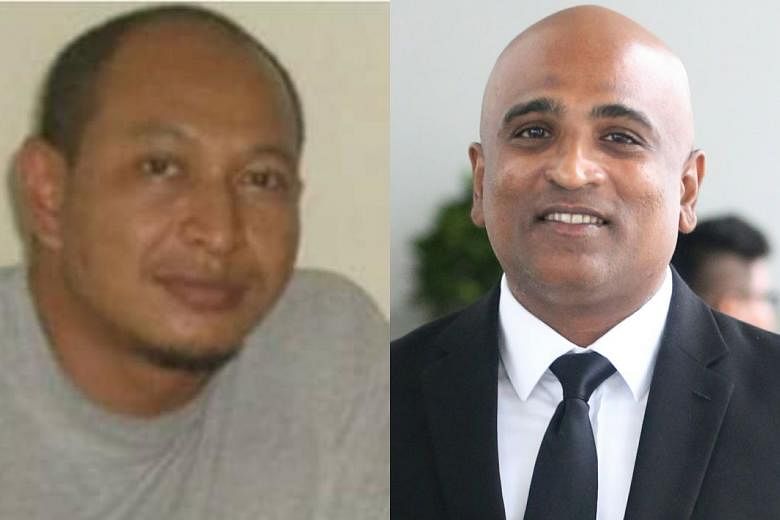In a bid to delay the execution of his client, the lawyer for a convicted Singaporean drug trafficker argued before the Court of Appeal yesterday that death row inmates are not being treated equally.
Mr M. Ravi contended that executions are not being carried out in the same order that the death sentences were meted out.
He said his client, Syed Suhail Syed Zin, 44, was scheduled to be hanged before those who were sentenced before him.
The lawyer suggested that, as a result of travel restrictions due to the Covid-19 pandemic, executions of foreigners are being pushed back.
He said his client believes that the death sentence passed on foreigners will not be carried out until the borders reopen, as they do not have access to family members and there may be issues in repatriating their remains.
Mr Ravi argued that this was a breach of Article 12 of the Constitution, which guarantees equality before the law.
Senior State Counsel Francis Ng, for the Attorney-General, argued that there is no provision requiring sentences to be carried out in the same sequence in which they were imposed.
The court, comprising Chief Justice Sundaresh Menon and Judges of Appeal Andrew Phang and Judith Prakash, asked for further submissions on this issue.
In a statement, the Ministry of Home Affairs (MHA) said there was no discrimination or impropriety in the scheduling of executions.
An execution will be scheduled after an inmate has exhausted all legal channels of appeal and clemency, regardless of whether the prisoner is a Singaporean or a foreigner, it said. The ministry added that its response to the "baseless" allegations will be filed before the next court hearing.
Suhail was sentenced to death by the High Court on Dec 2, 2015, for trafficking 38.84g of heroin.
His appeal was dismissed on Oct 18, 2018. On July 5 last year, Suhail was told that his petition for clemency had been rejected. On Sept 11 this year, he was told that he would be hanged last Friday.
Mr Ravi took up his case.
Last Thursday, his application to the High Court for judicial review was dismissed, but Suhail's execution was stayed pending the appeal.
Mr Ravi also sought judicial review of the clemency process.
Pointing to the dearth of successful clemency petitions, he argued that the validity of the process has been "extinguished".
Chief Justice Menon said an inference can also be drawn that the cases lacked merit. Justice Phang added: "You cannot take a negative result and then work backwards to say the process is unfair."
Mr Ravi also referred to a letter from Suhail to his former lawyer that the Singapore Prison Service (SPS) copied to the Attorney-General's Chambers (AGC).
In a bid to disqualify the AGC team, he argued that this was a breach of solicitor-client privilege, which rendered the prosecutorial process invalid.
Senior Counsel Ng told the court that he has not seen any letter.
Chief Justice Menon said he struggled to follow Mr Ravi's arguments, while Justice Phang called it a "non sequitur".
MHA explained that at his appeal in 2018, Suhail had told the court he wanted to call his uncle as a witness. AGC then checked with the SPS on whether Suhail had expressed prior intention to call his uncle.
SPS then sent copies of his letters to his uncle and his then lawyer to the AGC. At the time, there was no legal prohibition against doing so, said MHA.


